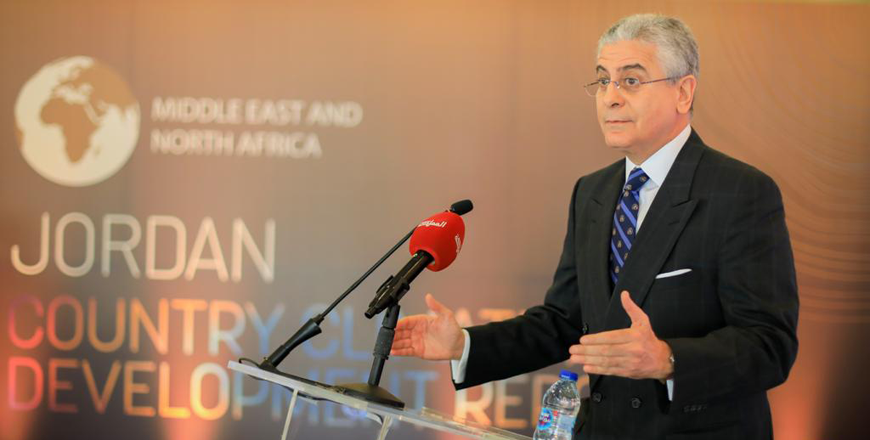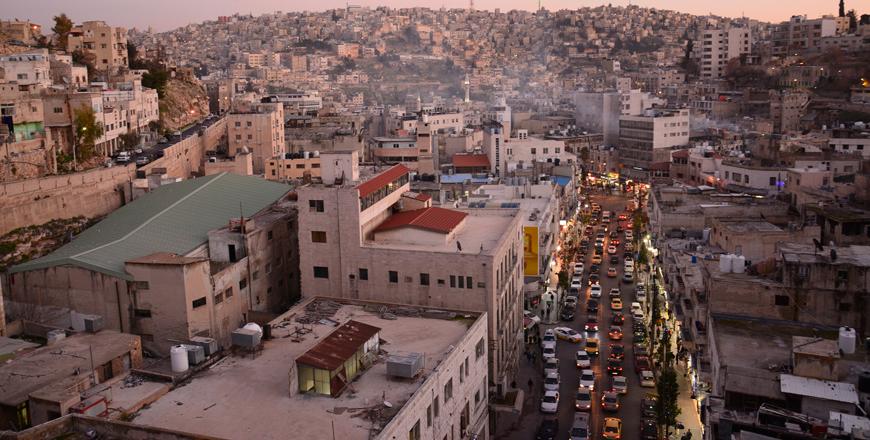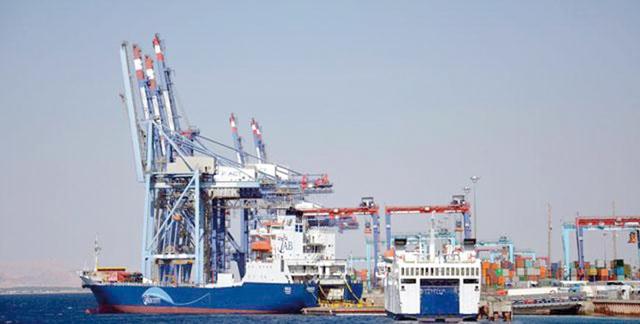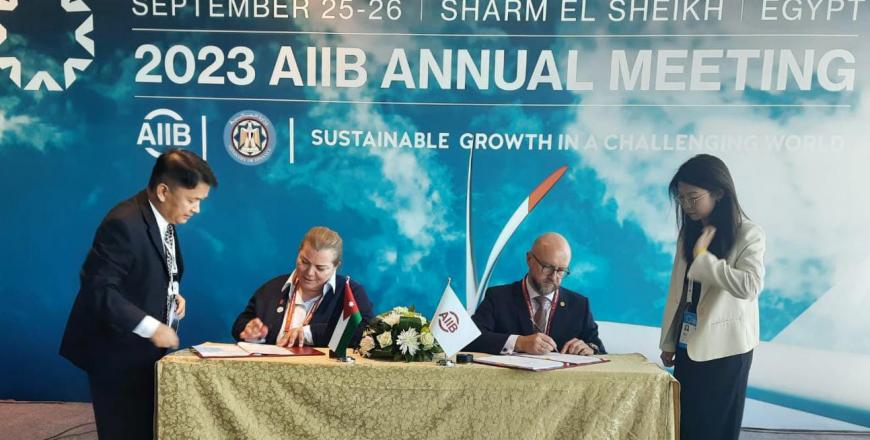You are here
‘Climate-responsive development central to Jordan’s economic future’
By Rayya Al Muheisen - Dec 07,2022 - Last updated at Dec 07,2022

World Bank Vice President for the Middle East and North Africa Ferid Belhaj speaks during the launch of Jordan’s Country Climate and Development Report on Wednesday (Photo courtesy of World Bank)
AMMAN — Climate-responsive development can bridge inequality, protect livelihoods and promote social cohesion, a World Bank Group report released on Wednesday said.
Jordan’s Country Climate and Development Report (CCDR), under the title “A Challenge and an Opportunity for Jordan’s Development and Growth”, was launched in partnership with the government.
The Jordan CCDR offers an evidence-based assessment of climate responsive policy and investment pathways that can unleash the country’s economic potential and improve outcomes for the people of Jordan, including integrated solutions for the water-energy-food security nexus, for low-carbon and resilient cities and to unlock financing for climate-responsive development and job creation.
The report supports actions under Jordan’s 10-year Economic Modernisation Vision which places sustainable practices and green investment at the core of the Kingdom’s future economic growth.
“Climate change is already having a profound impact on our country,” Nasser Shraideh, Deputy Prime Minister for Economic Affairs and Minister of State for Public Sector Modernisation, said during his remarks at the launch.
Shraideh added that Jordan’s new Economic Modernisation Vision promotes sustainable practices and green investment as the central pillars for Jordan’s future economic growth and for improvements in quality of life.
The report added that Jordan is faced with extreme water scarcity, rapid population growth and a limited natural resource base.
Delays in confronting climate change can exacerbate Jordan’s development challenges, the report said.
“Jordan has already emerged as a regional leader on climate action,” Ferid Belhaj, World Bank Vice President for the Middle East and North Africa, said during his remarks.
Belhaj added that the collective implementation of the Economic Modernisation Vision by the government, the private sector and the Jordanian people, along with the support of Jordan’s international partners, offers an opportunity to reimagine the Kingdom’s economy in the face of climate change and “turn a formidable challenge into a great opportunity for development progress”.
According to the report, Jordan’s trajectory in meeting its climate and development goals will be largely determined by policy and investment choices in the five key sectors of water, energy, agriculture, transport and urban development.
The report also identifies a set of recommendations to unlock, facilitate and scale-up financing for climate action.
“To adapt to climate change, Jordan will need financing and expertise, and the private sector is armed with both,” Aftab Ahmed, Regional Director of the International Finance Corporation (IFC), said during his remarks.
Ahmed added that in the years to come, private businesses and public-private partnerships can be “game changers” in terms of helping Jordan build a climate resilient economy that creates opportunities for all.
Related Articles
AMMAN — The World Bank Group’s (WBG) Board of Executive Directors approved on June 10, 2021, a $500 million programme to catalyse public and
AMMAN — The World Bank has approved $85 million in financing for the Jordan Support for Industry Development Fund Project, which aims
AMMAN — Minister of Planning and International Cooperation Zeina Toukan has participated in the eighth meeting of the Board of Governors of


















